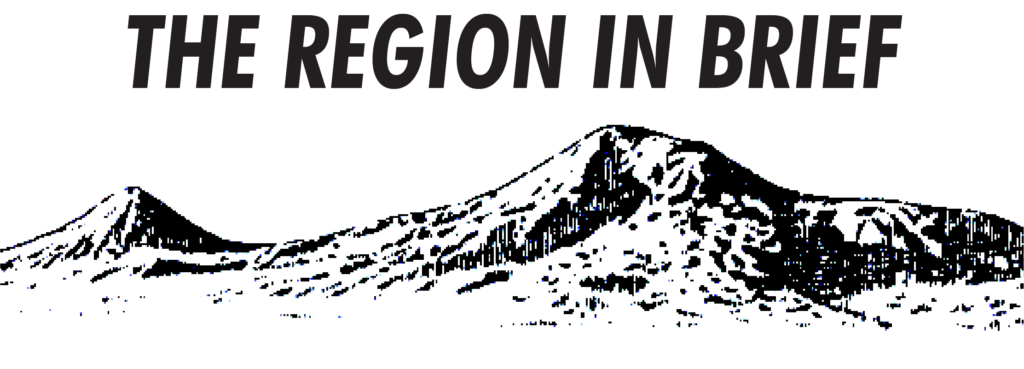 Armenia
Armenia
Armenia and Iran agreed to double natural gas exports from Iran to Armenia during a visit by Armenian PM Nikol Pashinyan to Tehran on November 1. Armenia currently imports about 365 million cubic meters of natural gas from Iran every year based on a gas-for-electricity agreement, under which Armenia gets one cubic meter of gas in exchange for three kilowatt hours of electricity produced in Armenia. Iran’s president Ebrahim Raisi said that trade between the two countries increased 43-percent in the past year, and they hope to increase annual bilateral trade to $3 billion. Pashinyan said that closer cooperation in the energy, agricultural and road construction spheres has “huge potential.”
Azerbaijan
Azerbaijan’s State Security Service (SSS) has detained 19 people who it claims were trained and funded by Iran’s intelligence services. The SSS said the group, who it identified as part of the opposition Shia Muslim Unity Movement, had been flown to Syria for military training then smuggled illegal religious extremist material into Azerbaijan. The Muslim Unity Movement has denied that the people identified by the SSS are its members. Azerbaijan’s security services often make similar accusations against Shia religious activists, who form the largest percentage of the country’s political prisoners. Several days before the arrest, a ruling party MP said that Azerbaijan must take steps to ensure its “religious security” against “Iranian-minded people.” The arrest also comes at a low point in Azerbaijan-Iran relations, as Iran has publicly taken Armenia’s side in its conflict with Azerbaijan.
Georgia
Opposition politicians and corruption watchdogs have criticized a draft bill proposed by the ruling Georgian Dream party that would create an anti-corruption agency. The agency would report to parliament and the Inter-Agency Coordination Council to Combat Corruption, the latter of which is in the prime minister’s office. The bill was drafted in response to a set of European Union recommendations that Georgia must meet in order for its EU candidacy to be considered, including creating an independent anti-corruption body. However, the programs director at the Institute for Development of Freedom of Information Levan Avalishvili said that the agency would replace an anti-corruption interagency council within the prime minister’s office and would not truly be independent.
Turkey
The US Supreme Court has rejected Turkey’s appeal for legal immunity regarding violent attacks on protesters by Turkish President Recep Tayyip Erdogan’s security detail in Washington, DC in May 2017. Nine protesters, mostly Kurdish Americans, were injured following brutal beatings outside of the Turkish ambassador’s residence, where Erdogan had returned after a visit to the White House. Lawyers for the Turkish government have said that the security guards used physical force to protect the Turkish president against “supporters of a US-designated foreign terrorist organization.” The Supreme Court has allowed criminal lawsuits in lower courts to proceed. While American law shields foreign governments from most lawsuits, lower courts have ruled that those protections do not extend to the 2017 attacks.



Be the first to comment